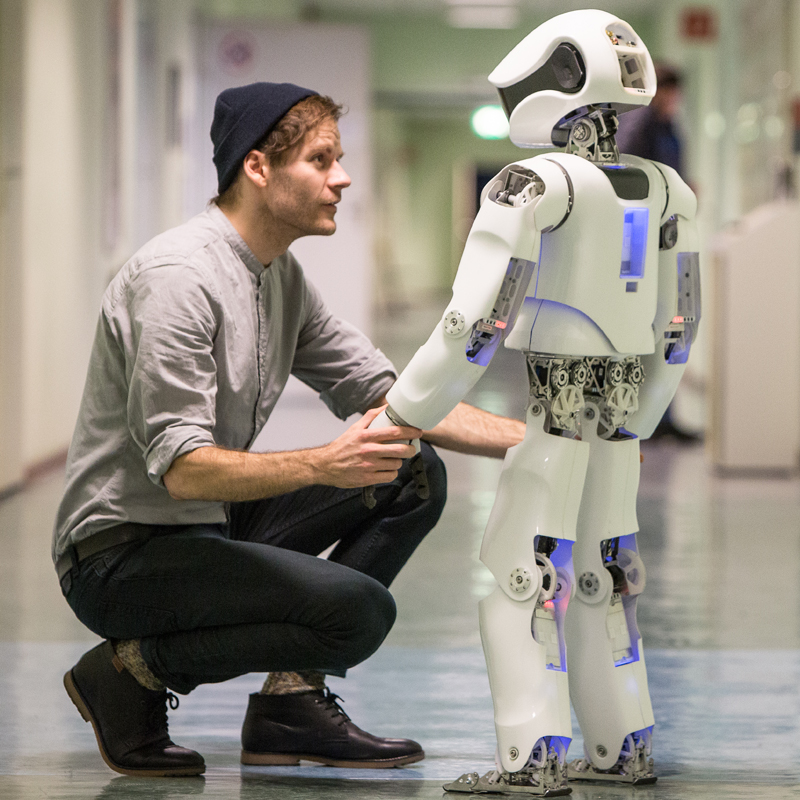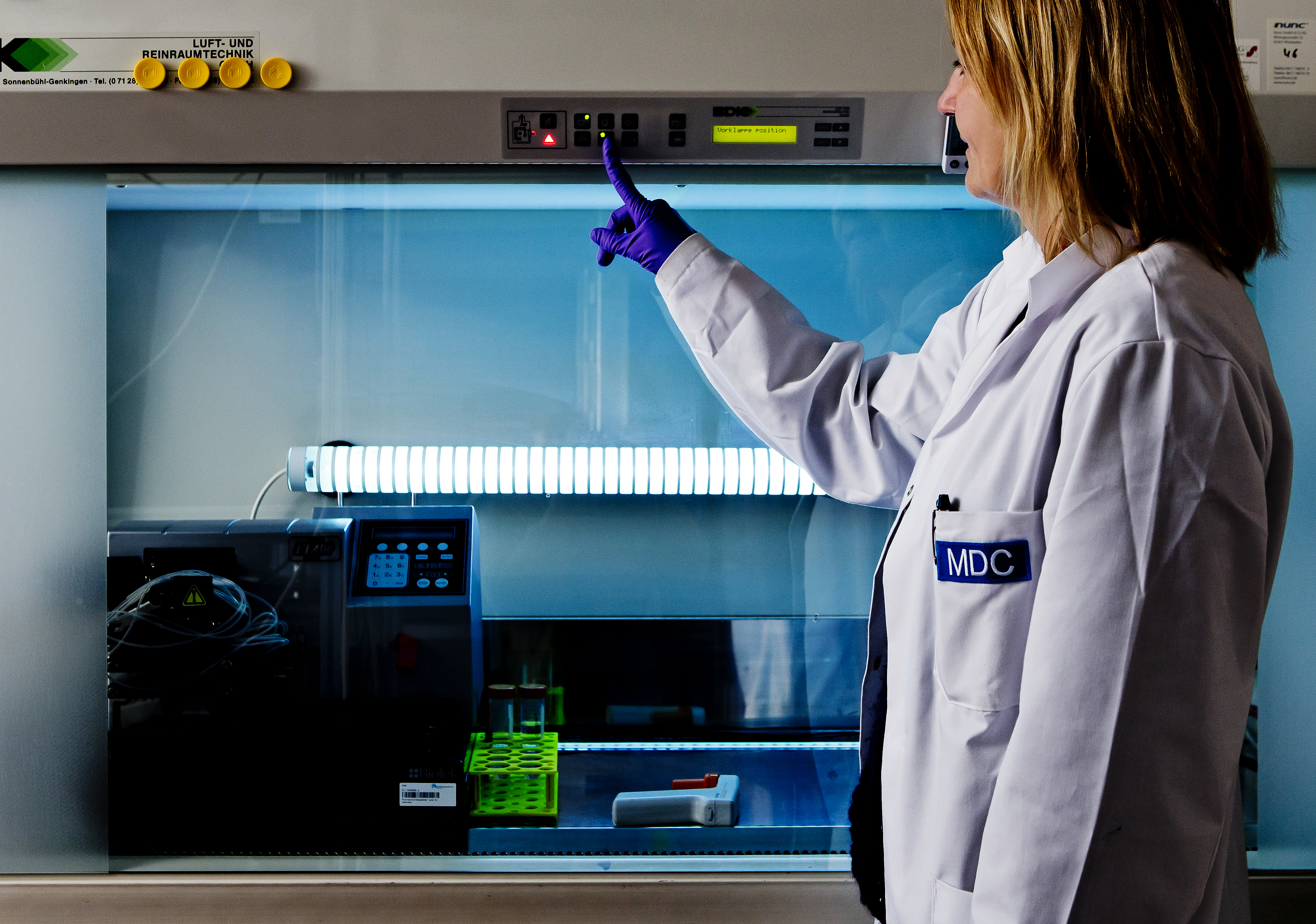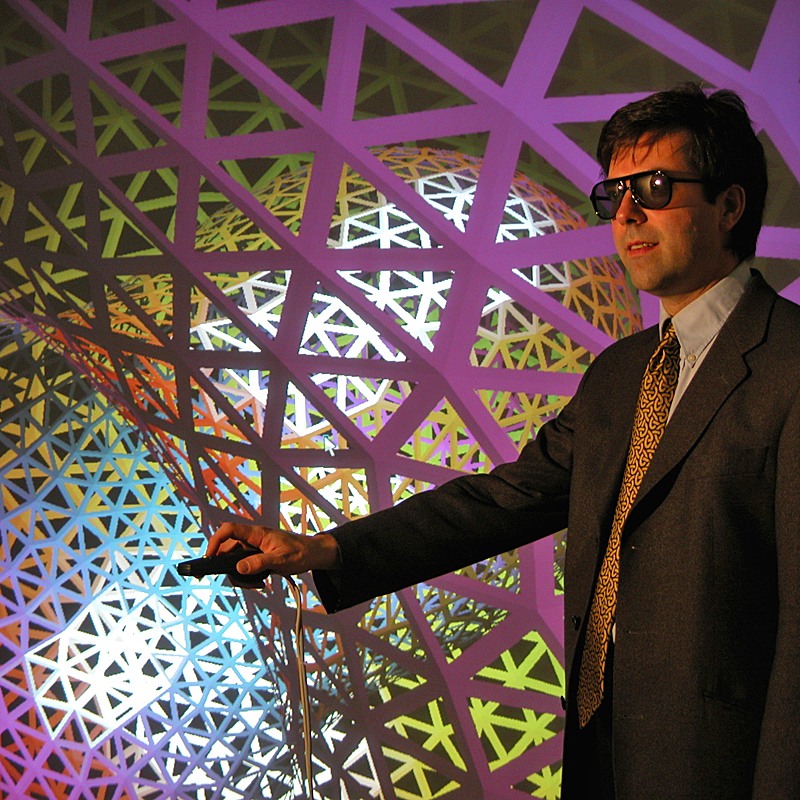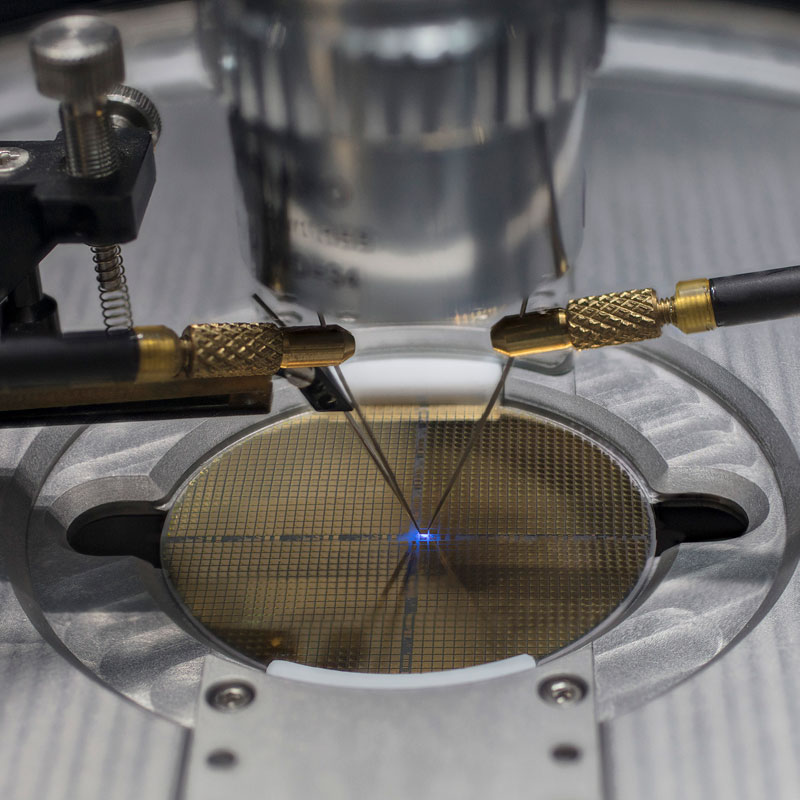The rich expertise of Berlin's scientific landscape
Berlin is a unique center for science and research: The city’s universities offer more than 700 different degree programs, and around 200,400 students are enrolled at Berlin’s higher education institutions. Around 20 percent of them come from abroad to experience the capital’s open and collaborative research environment. Promising partnerships between universities, non-university research institutions, and technology centers make Berlin a hotspot for both science and business.
Future-oriented concepts
Excellence Alliance: The city fosters interdisciplinary collaboration through excellence clusters, graduate schools, and special research areas. The Berlin University Alliance (BUA) – a partnership of TU Berlin, FU Berlin, HU Berlin, and Charité – has been funded since 2019 under Germany’s Excellence Strategy. The funding period is seven years and funds totalling around 335 million Euro were raised.
Excellence Clusters:
Matters of Activity: Image Space Material
SCIoI – Science of Intelligence
Unifying Systems in Catalysis (UniSysCat)
New Excellence Clusters 2026:
The city is also a hotspot for healthcare innovation, with strong research in Big Data, Digital Health, and Telemedicine, closely linked to its many medical institution.
Collaboration is key to the capital's success
The network between Berlin's various scientific institutions is strengthened by initiatives such as the IFAF Institut für Angewandte Forschung Berlin (Institute for Applied Research), which brings together the research expertise of the city’s four public universities of applied sciences.
The 35 professorships in the field of digital transformation at the Einstein Center Digital Future (ECDF) also demonstrate how Berlin continues to solidify its position as Europe’s science capital.
Research focus in Berlin: Germany's Center for Digitization

Digitization is being researched and driven forward in the capital. Key hubs of Berlin's Digitization Strategy include the following institutions:
- BIFOLD – The Berlin Institute for the Foundations of Learning and Data – As a flagship of cutting-edge research, BIFOLD brings together Berlin’s expertise in artificial intelligence. It was established in early 2020 through the merger of the Berlin Big Data Center (BBDC) and the Berlin Center for Machine Learning (BZML).
- Einstein Center Digital Future (ECDF) – An inter-university and interdisciplinary alliance dedicated to promoting and researching the digital transformation of society. The ECDF is a public-private partnership (PPP) involving more than 30 companies and organizations, all four Berlin universities, Charité – Universitätsmedizin Berlin, and over ten research institutes from Berlin’s scientific community. The ECDF began its work in 2017. In 2023, the ECDF entered its second funding phase. Focus research areas are: Transforming Communities, Integrated Health and Sustainable Cities.
- Weizenbaum Institut – This is a joint project between Berlin and Brandenburg, funded by the Federal Ministry of Education and Research (BMBF). The consortium includes all four Berlin universities (including the Berlin University of the Arts – UdK), the University of Potsdam, the Fraunhofer Institute for Open Communication Systems (FOKUS), and the Berlin Social Science Center (WZB).
- Fraunhofer High Performance Center “Digital Transformation” – In collaboration with the four Berlin-based Fraunhofer Institutes – FOKUS, HHI, IPK, and IZM – this center explores the city of the future as well as the digitalization of industry and production.
Berlin also offers new majors and exciting studies around in the field of digitization:
- “Humanoid Robotics" degree program – The Beuth University of Applied Sciences Berlin is offering the nation’s first major of its kind.
- Digital Transformation in the Finance Sector – Digitization is also playing an increasingly important role in financing strategies.
Berlin has all the prerequisites to become an important driving force for biomedical innovation in Germany and Europe. The city has an enormous density of biomedical research institutes, the Charité as Europe’s largest academic medical centre, four universities and a diverse start-up scene.
Medical research in Berlin - A dynamic healthcare hub

Berlin is home to Charité (Germany’s largest university hospital), the Max Delbrück Center for Molecular Medicine (MDC), and the Berlin Institute of Health (BIH).
- Charité – Universitätsmedizin Berlin – With over 21,500 employees—including 5,242 researchers, physicians, and 307 professors—Charité is one of Europe’s largest university hospitals, offering more than 3,200 beds. A total of 9,485 students are enrolled at Charité. It serves as the central hub for medical research in Berlin. (Data as of May 2023)
- Berlin Institute of Health (BIH) – The MDC is a biomedical research center and a member of the Helmholtz Association. Founded in 1992, it is dedicated to advancing medical progress, particularly in areas such as cancer research. The center is named after Nobel Prize laureate Max Delbrück, one of the pioneers of modern interdisciplinary genetics and molecular biology.
- Berlin-Buch – as one of Berlin’s 11 Futuresites, Berlin-Buch specializes in life sciences. Around 6,500 people work here in the healthcare industry. The heart of this science, medicine, and technology hub in northeastern Berlin is the 32-hectare Campus Berlin-Buch. Excellent research institutes in the fields of molecular medicine, pharmacology, and clinical research are based here (including MDC), as well as one of Germany’s largest biotech parks.
- Max Delbrück Center for Molecular Medicine – The Berlin Institute of Health is part of Charité. Its research focuses on translational medicine and precision medicine.
- Max Planck Unit For the Science of Pathogens – Founded in 2018 by Nobel laureate Emmanuelle Charpentier, the MPUSP is an independent institute of the Max Planck Society. Its mission is to strengthen basic research on pathogenic bacteria and viruses that cause diseases in humans. The MPUSP is located on the Campus Charité Mitte.
Berlin – A globally leading location in the healthcare industry
HealthCapital: Within the healthcare industry cluster, Berlin is promoted as one of the leading locations for healthcare services and life sciences. The German capital region of Berlin-Brandenburg holds a top international position in the healthcare industry, medical care, and life sciences.
Global market leaders, renowned scientists, top-tier clinics, innovative startups, and specialized professionals from around the world work together here every day to achieve excellence for both regional and global healthcare markets.
Big Data, Digital Health, and Telemedicine are key research areas for the region’s innovative pharmaceutical, medtech, and biotech companies. Closely connected with the city’s many medical institutions, they make Berlin an attractive hub for healthcare innovation.
Humanities and Social Sciences - Berlin attracts industry experts from around the world

In Berlin, interdisciplinary expertise meets a wide range of research fields in the humanities and social sciences – from antiquity to today’s global transformation processes.
- Leibniz-Zentrum Allgemeine Sprachwissenschaft (ZAS) – A unique research institution in Germany dedicated to the structure, acquisition, and processing of human language.
- Zentrum für Literatur- und Kulturforschung (ZfL) – Literature in interdisciplinary and intercultural discourse: This independent institute explores the history of theory, world literature, and knowledge of life.
- Berlin Social Science Center (WZB) – An institute that advances basic research on the opportunities for innovation in modern societies through international comparative studies.
- Berlin Brandenburg Academy of Sciences and Humanities (BBAW) – The BBAW is a cross-disciplinary and cross-regional association of outstanding scholars with a tradition spanning over 300 years. Its history has been shaped by 80 Nobel Prize laureates.
Future-oriented research center - Mathematical sciences in Berlin

Brain City Berlin has developed into a major center for mathematical research – with groundbreaking approaches and results.
Einstein Center Mathematics – Founded in 2014 as a joint project of three mathematical research centers – the DFG Research Center Matheon, the Berlin Mathematical School, and the Deutsche Zentrum für Lehrerbildung Mathematik – this center brings together their activities.
Math+ – In the DFG-funded Excellence Cluster “Berlin Mathematics Research Center MATH+”, researchers explore new approaches in applied mathematics across institutions and disciplines. The focus is on mathematical foundations for handling ever-larger volumes of data in the life and material sciences, energy and network research, as well as the humanities and social sciences.
Zuse-Institut Berlin (ZIB) – The ZIB is an interdisciplinary research institute for applied mathematics and data-intensive high-performance computing. Its main topics include modeling, simulation, and optimization. The ZIB works closely with partners from academia and industry.
Research Center Matheon – Matheon conducts application-oriented mathematical research for key technologies, such as biotechnology, micro- and optoelectronics, and information and communication technologies. It is a collaboration between Freie Universität Berlin, Humboldt-Universität zu Berlin, Technische Universität Berlin, and the research institutes WIAS (Weierstrass Institute for Applied Analysis and Stochastics) and ZIB (Zuse Institute Berlin). Since 2014, Matheon has been funded by the Einstein Foundation Berlin.
German Centre for Mathematics Teacher Education (DZLM) – This center for professional development in mathematics education operates across federal states, is practice-oriented and research-based. It is a project of the Leibniz Institute for Science and Mathematics Education (IPN).
Quantum Technology – Synergies between Research and Industry

In the Quantum Year 2025, it becomes especially clear: Brain City Berlin is excellently positioned in the future field of quantum technology, with top-tier research institutions. In collaboration with highly competent companies, innovative products and solutions are being developed here.
- BERLIN QUANTUM – The vision of this initiative driven by Berlin’s business community, research institutions, and universities is to advance excellent research. Furthermore, the transfer of quantum technologies into diverse application areas is being promoted. BERLIN QUANTUM is open to everyone working with quantum technologies in Berlin, developing them, or wishing to become part of the ecosystem
- Joint Lab „Integrated Nonlinear Quantum Optics“ – With the launch of the Joint Lab in July 2025, the Ferdinand-Braun-Institut, Leibniz Institute for High Frequency Technology (FBH), and Humboldt University of Berlin (HU Berlin) have expanded their collaboration in the field of quantum research. The aim is to more closely link fundamental and application-oriented research in the field of quantum light-based sensing.
- Cutting-edge research in the field of quantum technology also takes place at various “quantum locations” across Berlin. In addition to the Ferdinand-Braun-Institut, Leibniz Institute for High Frequency Technology (FBH), these include the Fritz Haber Institute of the Max Planck Gesellschaft, the Department of Physics at Freie Universität Berlin, Fraunhofer FOKUS, the Fraunhofer Institute for Reliability and Microintegration (IZM), and the Helmholtz-Zentrum Berlin (HZB) with the BESSY II X-ray source, as well as the German Electron Synchrotron DESY just outside Berlin one of the world’s leading centers for research on and with particle accelerators.
Aerospace – from Berlin to spcace
Science and research are key drivers of innovation in Berlin’s strong aerospace industry. This is especially true in the fields of small satellites, drone technology, and “New Space.” With more than 80 start-ups, the New Space industry is booming in Brain City Berlin.
"We want to give industry the opportunity to settle on the moon and advance the colonisation of the moon. This will also help humanity because new technologies and new areas of research will emerge."

Numerous spin-offs are emerging from Berlin’s universities, colleges, and non-university research institutions. Incidentally, TU Berlin is the university with the most satellites in orbit worldwide.
- German Aerospace Center – The DLR Institute in Berlin is a globally leading competence center for optical sensor systems and their application in planetary research, Earth observation, and security.
- Institute of Aeronautics and Astronautics – Founded in 1995, the ILR focuses on solving socially and economically relevant challenges in aerospace. It plays a leading role in satellite research and development.
- Berlin-Brandenburg Aerospace Allianz (BBAA) – The goal of this aerospace network is to actively connect business, science, and politics, and to promote the further development of aerospace in Berlin and Brandenburg.